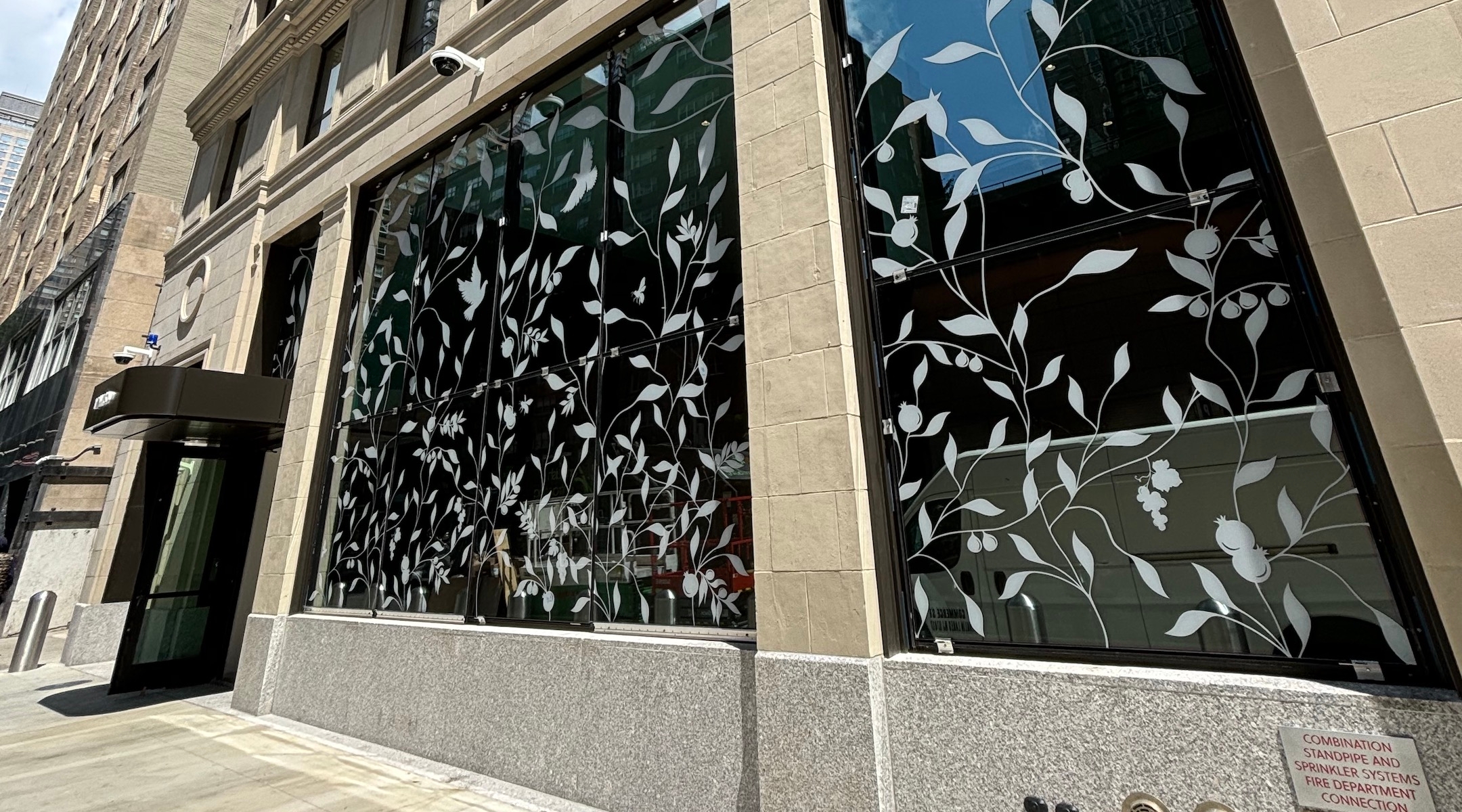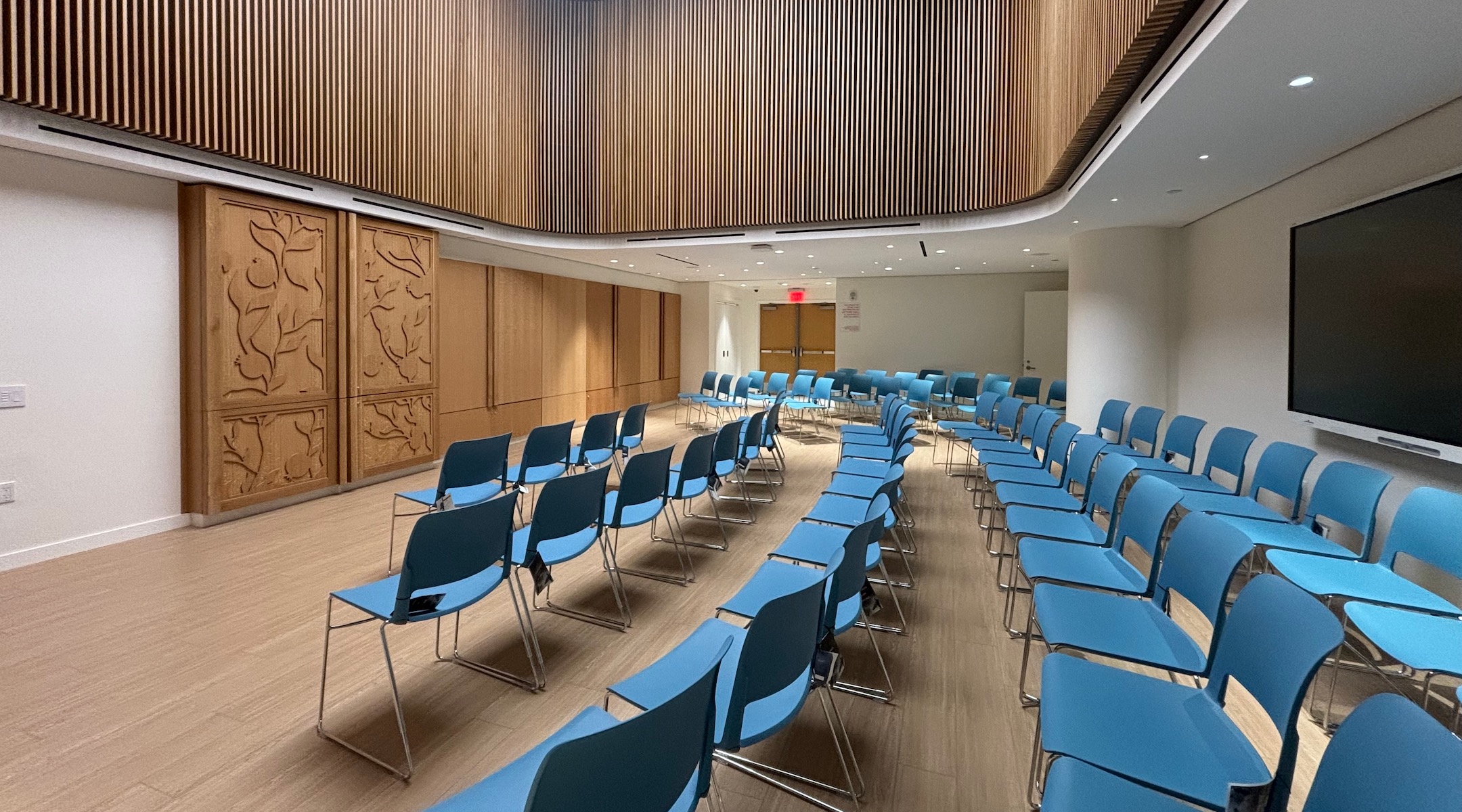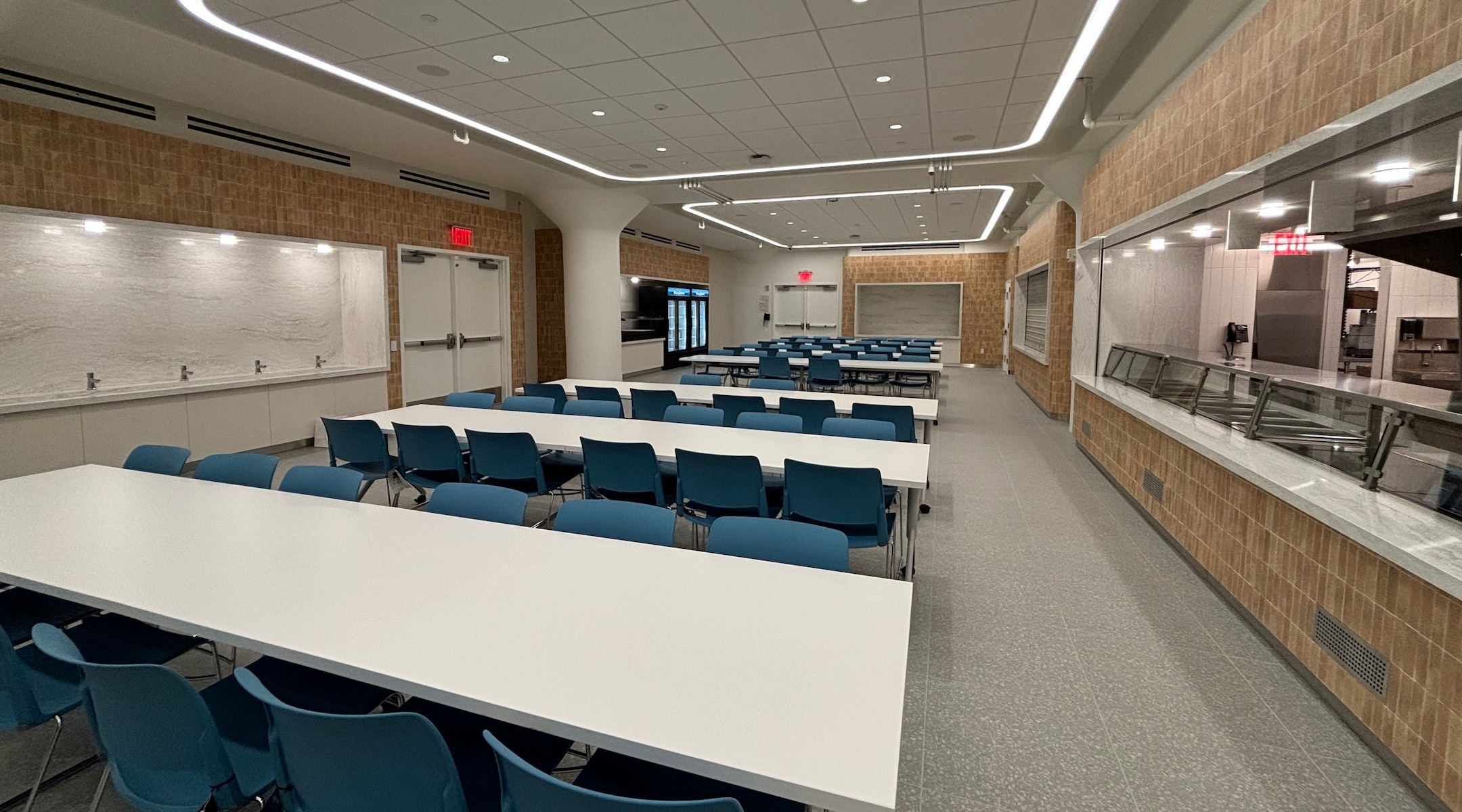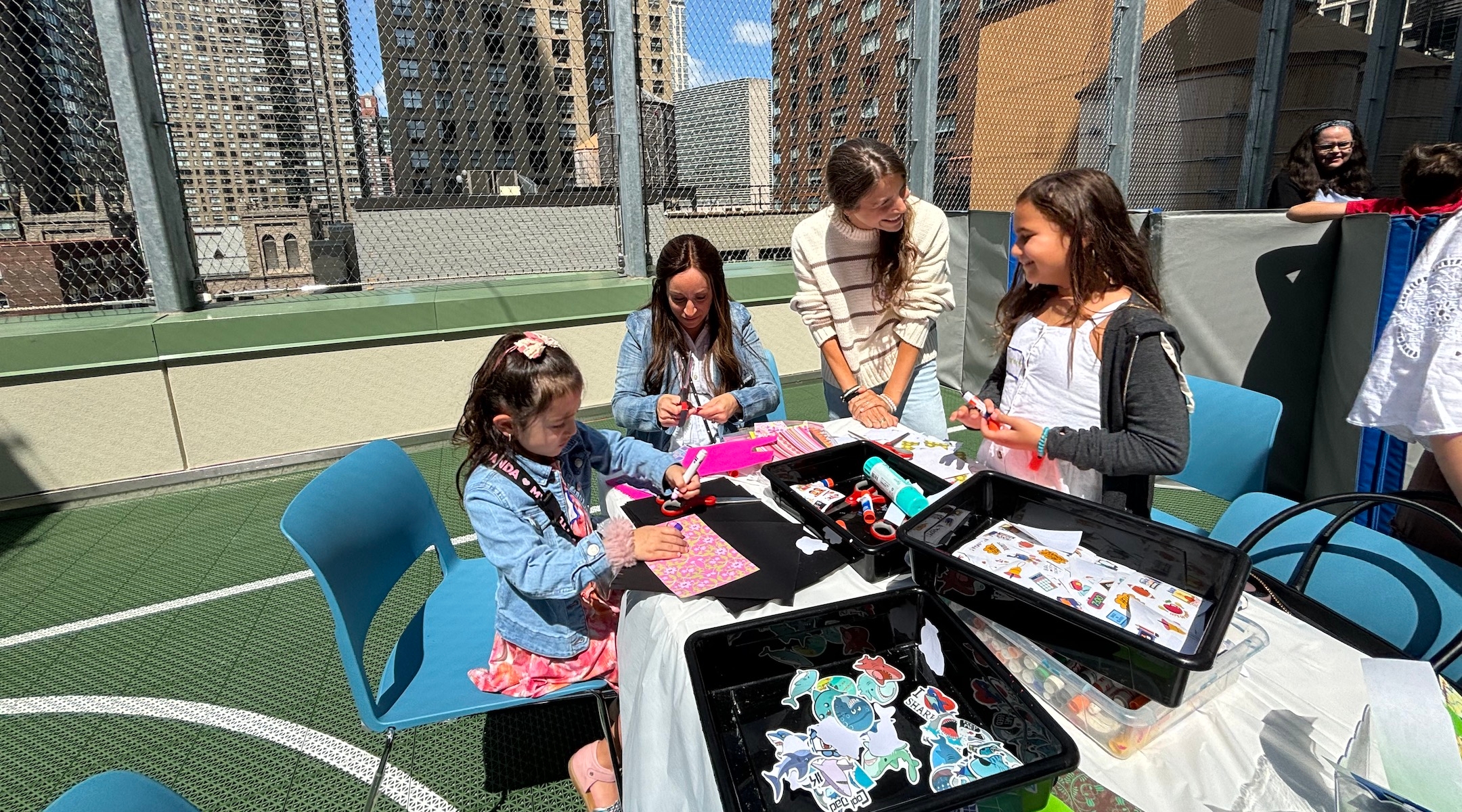When 230 students return to classes at The Shefa School tomorrow, they’ll do so in a brand-new, $100 million building on the Upper West Side.
The pluralistic Jewish day school, which specializes in teaching students with language-based learning disabilities like dyslexia, completed the move into the renovated building at 17 West 60th St. in late August. The new digs include upgraded amenities such as science labs, indoor and outdoor gyms, a rooftop garden and multiple libraries.
“We’re both at the end of an amazing journey and really just the beginning of this next chapter,” Ilana Ruskay-Kidd, Shefa’s founder and head of school, told the New York Jewish Week.
In 2022, the school purchased a 99-year ground lease for the 12-story building near Columbus Circle — which hadn’t been occupied in more than 40 years — for $49.5 million. To afford the move and the renovation, the school was granted $65 million in municipal bonds through the city, Ruskay-Kidd said, and is raising an additional $30 million via a capital campaign.

The entrance to the building at 17 W 60th St. (Courtesy Shefa School)
The Shefa School opened in 2014 at Lincoln Square Synagogue on the Upper West Side with 24 students across four grades, and then moved to 40 E. 29th St. in 2016 with 80 students. Since then, enrollment has grown to 230 students and, today, the school serves grades kindergarten through 8. With the school’s new 75,000-square-foot building, they’ll be able to accommodate up to 350 students.
“From the beginning, we always felt that our mission was, yes, to open a school, but also to change the conversation,” Ruskay-Kidd said. “However many students we’re going to serve, that’s still only the teeniest, teeniest fraction of 15 to 20% of the general population that has a learning disability,” the most common of which is dyslexia, she said.
Emily Raviv’s daughter started sixth grade at The Shefa School last year, following an elementary school experience with “lots of frustrations and challenges” at another Jewish day school, where she said her child struggled academically and socially because of learning disabilities.
Changing schools has been transformative for her child. “All the different facets of her are seen in each and every subject, and what they’re trying to help her with is reinforced in every class that she goes into each day,” said Raviv, who lives in Tribeca. “It was really the first time that we felt seen as a family, that we felt truly supported as a family, and I felt like I had partners in this process. It was a pretty incredible feeling.”
Raviv and her daughter have visited the school’s new building several times over the summer to help plant the rooftop garden, get a sense of the space and see her classmates. Being in the building has given her daughter “a stronger sense of ownership and stewardship and pride,” Raviv said. “I’m really hopeful that going into this year, we’re just building on that success.”

The Beit Midrash, or prayer and learning space, at The Shefa School. (Courtesy Shefa School)
One factor in that success: A capital campaign that drew from a diverse set of individual donors, families, philanthropies and foundations, including donors who don’t have children in need of its services.
“People really see this as a community resource, just like how you would want a good hospital, even if [you] never actually have to use it,” Ruskay-Kidd said. “Part of the beauty of this project has been the broad communal support.”
Shefa School board president Robert Frost, a commercial real estate investor, is one such donor who does not have children at the school. “The real thing that attracted me to being involved was this notion that Judaism should be inclusive,” he told the New York Jewish Week, adding that he has sometimes felt excluded from Jewish spaces because he never had a formal Jewish education. He wanted to help create a space where children with learning disabilities don’t have to choose between getting the education they need or the Jewish community they want.
“One has nothing at all to do with being Jewish, which is giving kids who don’t learn the same way as others the services they need,” he said. “At the same time, why should they be excluded from having a Jewish education and upbringing if that is what is important to them, just because they don’t learn in a traditional way?”
Ruskay-Kidd said that’s one of the school’s goals: to reinforce positive feelings for the students about being in a Jewish community, especially if they had struggled in the past.
“One of the biggest motivations for us was that we wanted children and families to feel the Jewish community was a place where they could feel good about themselves and where they could thrive,” she said. “It affects how you feel about yourself and your community — if your experience there is a place of failure and of defeat. Part of the beauty of this new building is that they can get what they need within a beautiful, gracious Jewish community.”

The school’s new cafeteria. (Courtesy Shefa School)
Ruskay-Kidd is particularly excited about the brand-new Shefa Center, a professional development and training hub for where teachers, administrators and educators at mainstream schools across the city and country can learn best practices for working with children with learning differences.
The Center will also offer consulting, workshops and lectures for outside educators and will conduct research with the school population — currently students are participating in a study on learning Hebrew.
“While we obviously believe in our approach and what we’re doing here at Shefa, building a standalone Jewish day school for kids with language-based learning disabilities may not be the answer if you’re in Pittsburgh or another community which has fewer Jews,” Ruskay-Kidd said. “We want to help them think about ‘how do you make your own day school better?’ We really like to problem-solve with them for what makes sense in their community, which may not be exactly the same as here in New York City.”
Ruskay-Kidd noted that several programs and schools like Shefa have grown in recent years, including Torah and Learning Academy, a yeshiva for kids with language-based learning disabilities in Belle Harbor, Queens, that opened last year and Yeshivat Shalshelet, an Orthodox school for kids with learning disabilities that opened in Tenafly, New Jersey in 2022.
“We’re delighted, because we know that there are so many kids that need. If students don’t need to commute as far for this, or if their third grade teacher is more equipped in their mainstream school, that’s a great thing,” she said.
For school parent Raviv, she’s most excited about having a space large enough to accommodate the school community. Shefa’s previous building only had a small gym and no auditorium.
“What I was really craving was the opportunity to meet other families and to feel connected to the school and what the kids were doing, but they just didn’t have the facility to accommodate that,” she said. “It’s just amazing to be in this new building, which is this light-filled space that was designed specifically for these kids’ needs.”
According to Ruskay-Kidd, the school’s new home is a literal reflection of its name, Shefa, which means “abundance” in Hebrew — which also serves as motto of sorts for the school. “We want children, their parents, their teachers and their community to remember that these students have abundant blessings and gifts and strengths, and not to lose sight of that,” she said.
The New York Jewish Week brings you the stories behind the headlines, keeping you connected to Jewish life in New York. Help sustain the reporting you trust by donating today.





